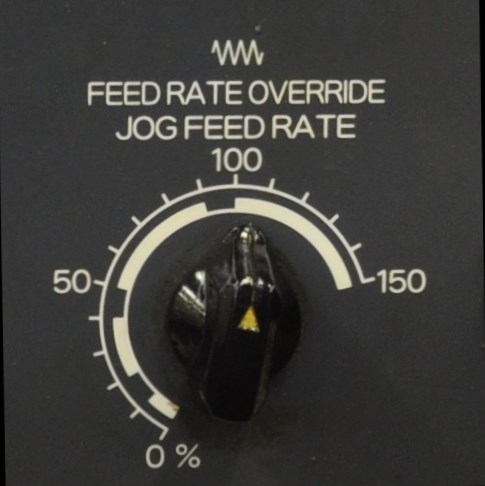Try 110
First, recall this scene in the movie "This is Spinal Tap" where Brit guitarist Nigel Tufnel deftly explains the value of having amps with knobs that go to 11 (versus most blokes’ amps that only go to 10). Now, consider the following machining tip as you replay that “one louder” scene in your mind: Turn the feed rate override to 110 percent.
Share






First, recall this scene in the movie "This is Spinal Tap" where Brit guitarist Nigel Tufnel deftly explains the value of having amps with knobs that go to 11 (versus most blokes’ amps that only go to 10). Now, consider the following machining tip as you replay that “one louder” scene in your mind:
Turn the feed rate override to 110 percent.
Steve Paulding, a cutting tool specialist for the Industrial Distribution Group, suggested the strategy in response to this column I wrote about how potential gains in productivity often go unrealized. Mr. Paulding says increasing the override to 110 percent oftentimes will reduce milling or turning cycle times by 10 percent and improve tool life. He believes 6 seconds can be cut from every 60 seconds of cycle time, and 30 minutes of tool life can be extended to 31.5 minutes.
Mr. Paulding recommends running with the override at 110 percent for a little while. If no part-quality or tool-life issues arise, edit the part program with the higher feed rate and drop the override back to 100 percent. If all continues to go well, bump the override up to 110 percent again and see if you achieve additional gains. By continuing this process until a problem arises, Mr. Paulding says you’ll know how far you can push your tools and machines.
I admit the "Spinal Tap" analogy is a stretch and tad silly, but being a guitar nerd of sorts, it did give me an excuse to link to one of the funniest scenes in that infamous flick.
Related Content
-
Custom PCD Tools Extend Shop’s Tool Life Upward of Ten Times
Adopting PCD tooling has extended FT Precision’s tool life from days to months — and the test drill is still going strong.
-
Heule Tool Enables Spot Facing of Difficult-to-Reach Areas
The manually actuated bkac spot facing tool is well suited for large boring mills and other open-air machines.
-
Tungaloy Drills, Milling Inserts Provide Enhanced Stability
Tungaloy has expanded its DrillForceMeister and TecMill lines with new drill bodies and milling inserts.
.png;maxWidth=970;quality=90)
















.png;maxWidth=300;quality=90)



